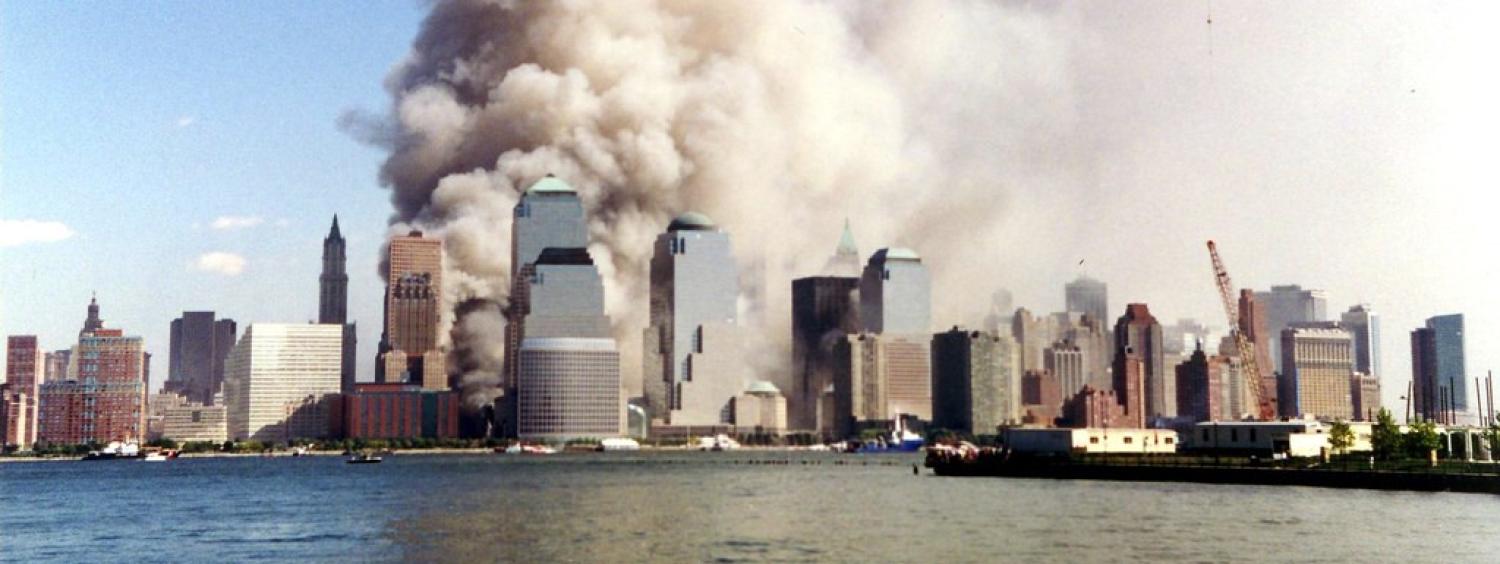One of the most influential writers on US foreign and security policy, G John Ikenberry, refers to American’s capacity to steer world order. This simple metaphor recognises that despite the actual and potential conflicts that exist among the members of international society, world order can be led and managed. In the post-1945 world, America provided steerage capacity through a combination of close bilateral relations with key strategic allies and by creating enduring multilateral institutions.
What will world order look like with Trump driving American foreign policy? It is not hard to find prophets of doom foretelling of a global order in imminent crisis. Even a moderate and informed voice, Financial Times journalist Philip Stephens, was moved to argue that we are heading for a period where the new normal is going to be a succession of 'dangerous dislocations'.
During the campaign, the dislocations that were most prominent included deepening friendships with hostile states such as Russia, while portraying long-standing allies as free-riders. Japan, South Korea, and the other 27 members of NATO, have all been warned against taking American for granted. For the time being, Australia has avoided being grouped with the coalition of the ungrateful – though Paul Dibb is surely right to warn that a ‘plan B’ would be prudent.
A prime source for future dangerous dislocations could, ironically, have its roots in domestic politics. Pushback against welfare cuts and divisions created by anti-immigration policies may compel Trump to go abroad in search of enemies. Margaret Thatcher had electoral success in 1983 because the British people regarded the defeat of Argentina as a worthier goal than the miners who she had portrayed as 'the enemy within'.
More recent American history adds weight to this argument. Remember how George W Bush only became presidential after the Al-Qaeda attacks on New York and Washington? Picture him standing on the rubble at Ground Zero only a few days after 9/11. He was there to boost the morale of the rescue workers; as he began an impromptu speech using a loud halo, a fireman in the crowd shouted 'we can’t hear you'. Bush replied: 'I hear you, the rest of the world hears you and the people who knocked down these buildings will hear all of us soon'.
It is interesting to note that Trump’s victory also occurred on 9/11, albeit only when the sequence of day/month is changed to that which is familiar in the majority of countries that use the Gregorian calendar. Will 9/11 2016 be seen as having the same symbolic power as 9/11 2001?
The 2001 attacks showed how relatively easy it is for a President to generate bi-partisan support to wage war than it is, for example, to create a consensus in favour of universal health care. Patriotic slogans such as ‘making American great again’ resonate louder and clearer when an external threat has been identified.
The identity and source of the threat is largely irrelevant. As we know from the build-up to the 2003 Iraq War, public opinion is highly susceptible to emotive appeals. Ordinary voters bought the argument that Saddam Hussein was behind the 9/11 attacks even though there wasn’t an intelligence community anywhere in the world that gave such claims the time of day.
This example shows that there is nothing very new about this ere of ‘post-truth reality’, even if it took liberals in the UK by surprise in the referendum on EU membership. What the US presidential campaign showed is that fact-checking is no match for simplistic ‘looped’ messages such as ‘make American great’.
One fact that is not 'post truth' is that the President of the United States can issue a command to unleash a nuclear attack without asking anyone’s permission. On inauguration day, he will be given the nuclear briefcase that allows him to launch any number of up to 2000 strategic nuclear missiles. Trump is surely uniquely disqualified to bear this responsibility.
President Obama has already messaged his successor regarding the need for the President to show more restraint in office than he did during the campaign. On many occasions, particularly during the debates, Trump appeared erratic and impetuous. If the best predictor of future conduct is past behaviour, then it would be Panglossian in the extreme to expect Donald Trump to deploy the kind of diplomatic maturity that will be needed in crisis situations.
An article in The Atlantic prior to the election mounted a strong case against a Trump victory on the grounds of his unsuitability to manage a nuclear crisis. Many believe North Korea is the most likely trigger for a nuclear exchange. Imagine a scenario in which Trump is informed by his defense secretary about a potential North Korean strike on American soil. Would he be capable of the kind of maturity that President Kennedy showed during the Cuban Missile Crisis in 1962? Even in the heat of the moment, Kennedy was able to reject both war and capitulation in favour of a third way that allowed both sides to save face.
Previous Presidents with little or no understanding of foreign policy relied heavily on their advisors; many also sought to fast-track their political education by reading biographies and popular history. Will Trump learn from the lessons of history? Foreign policy specialist Robert Kaplan is among those who thinks this is unlikely, writing ‘Trump seems post-literate, a man who has made an end run around books directly to the digital age, where nothing is vetted, context is absent and lies proliferate'.
One leader who was not only a veracious reader of history but also wrote history was Winston Churchill. He once said that you can always count on Americans to do the right thing - after they've tried everything else. The portends of a Trump-led America will surely test Churchill’s guarded optimism to the limit.
Photo courtesy of Flickr user Wally Gobetz
